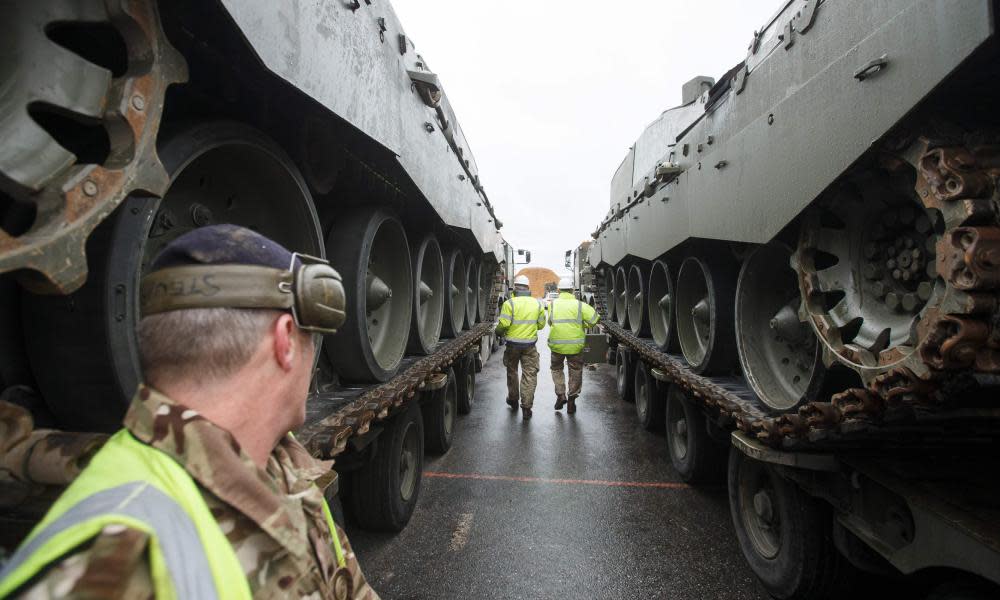Estonia: security will not be bargaining chip in Brexit negotiations

Britain will not be able to divide Europe by using security as a bargaining chip in its Brexit negotiations, Estonia’s president has said.
Kersti Kaljulaid, Estonia’s first female leader, also welcomed the arrival of about 120 British troops last week in the Baltic nation, the first batch of soldiers deployed under a Nato plan to deter Russian aggression. Britain and Estonia have security ties dating back to 1918 and the latest deployment underscores the UK’s intention not to retreat from European defence.
But some EU sources are concerned Theresa May intends to use Britain’s military and security prowess as a bargaining chip in upcoming Brexit talks. In January, the prime minister said “a punitive deal” for Britain would be “an act of calamitous self-harm for the countries of Europe”, in part of her Brexit speech that discussed security.
Kaljulaid declined to speculate over the British government’s intentions, but made clear there was no question of pitting security against Brexit. “You don’t mix different subjects and topics,” she said. “That is very important in diplomatic debates and discussions. We are extremely happy that Great Britain is our enhanced forward-presence framework nation in Estonia and your soldiers are welcome.”
Estonia, like all EU members, was “very sorry” to see Britain leave the EU, she said, “but we are sure that at some point Great Britain will also miss its place in the room, behind the table”.
Trained as a biologist, Kaljulaid was selected by the Estonian parliament as a compromise candidate for the largely symbolic post. She was speaking as EU leaders flew to Rome to mark the 60th anniversary of the European project, where they will sign a declaration professing unity.
But harmony has been marred by disputes with Poland and Greece over the text. May has chosen to skip the celebrations, which come just four days before she will trigger article 50 to initiate Britain’s withdrawal from the EU.
Despite the shadow of Brexit, Kaljulaid said splits over migration and the single currency were “testing but they aren’t existential”. She was emphatic that both would be resolved by the time the EU marked its 70th birthday in 2027. “The European Union will always muddle through to the better future,” she said.
Since Estonia joined the EU in 2004, support has risen. “Estonian people are quite rational people and if you think about the big problems our continent is facing – migration, terrorism, environmental threats – none of these issues can be solved any better without the European Union,” she told the Guardian on the margins of an event organised by the German Marshall Fund.
Estonia will hold the EU’s six-month rotating presidency in the second half of 2017, an organising job that was hastily shunted forward when the UK ceded its right to chair the EU following the referendum vote. Although playing a limited role in Brexit talks, the nation of 1.3 million will be in the spotlight, a moment it will use to stress the importance of the internet for Europe’s future.
Estonia is one of the most digitally connected countries in the world, even before a cyber-attack in 2007 highlighted the need for internet defences.
All countries needed to be more resilient in the face of disruption to democracies caused by the spreading of false information, Kaljulaid said.
But she warned against assumptions that Estonia’s Russian-speaking minority would be easily swayed by Kremlin-funded media. She said: “[There is] a tendency to think the language people speak is a somehow a primer to their mindset. It’s totally wrong. Russian-speaking people also like freedoms and democracy and freedom of movement of the European Union. They like the living standards they can get.”

 Yahoo News
Yahoo News 
